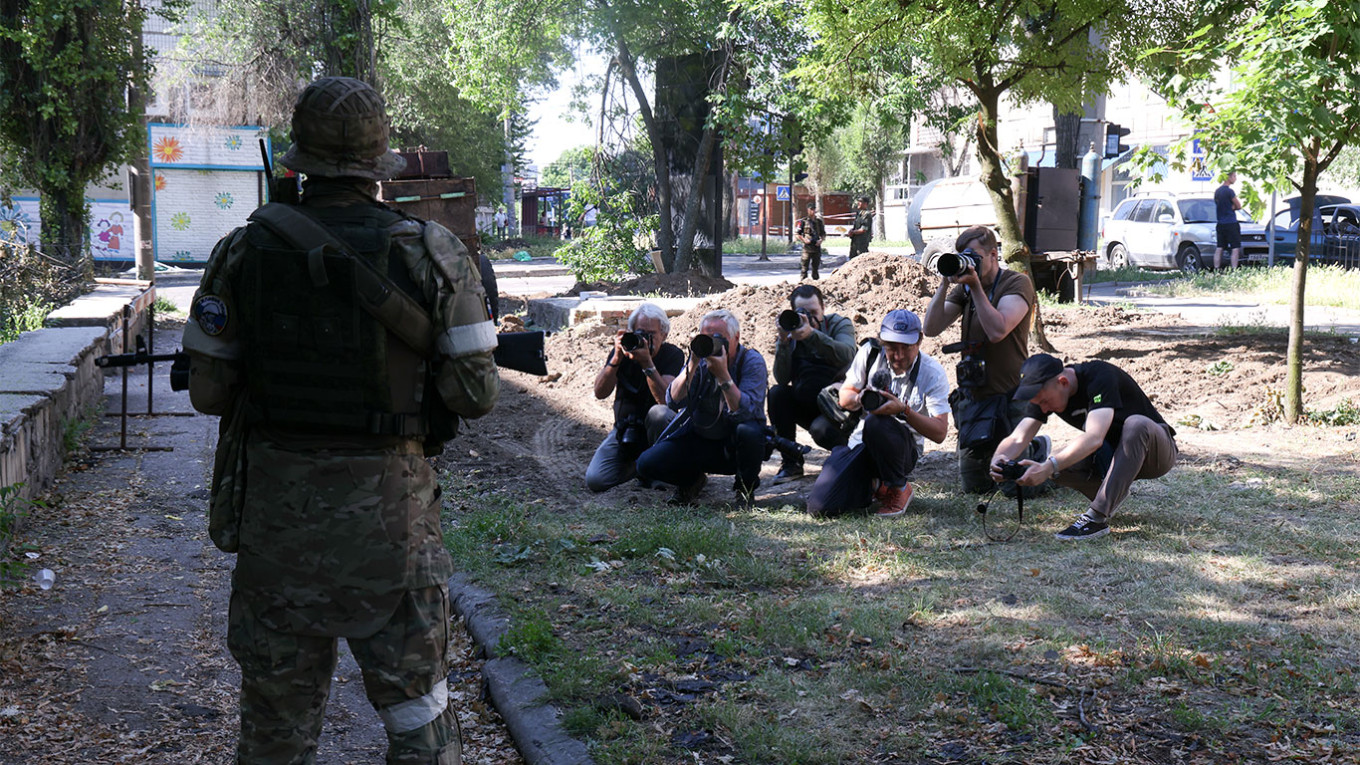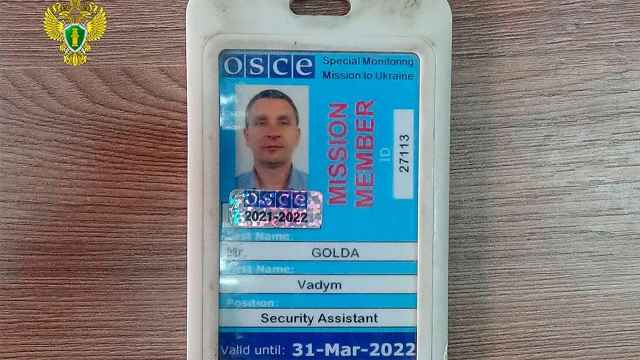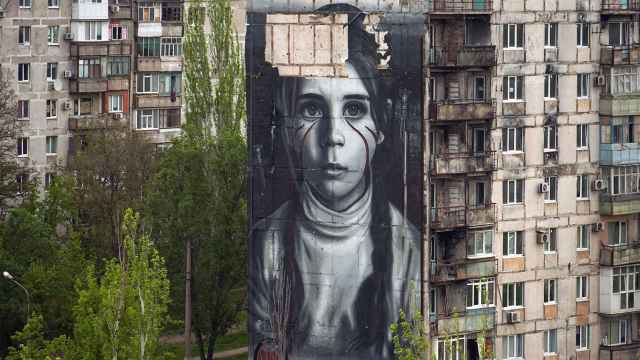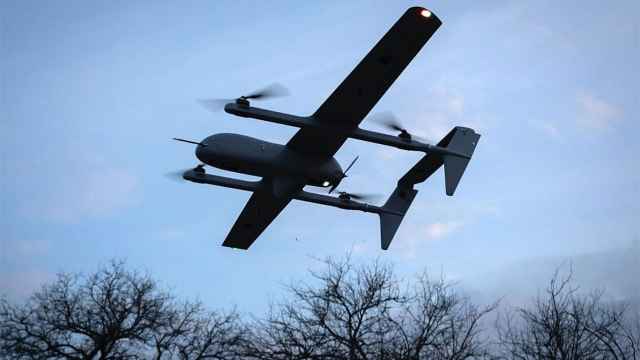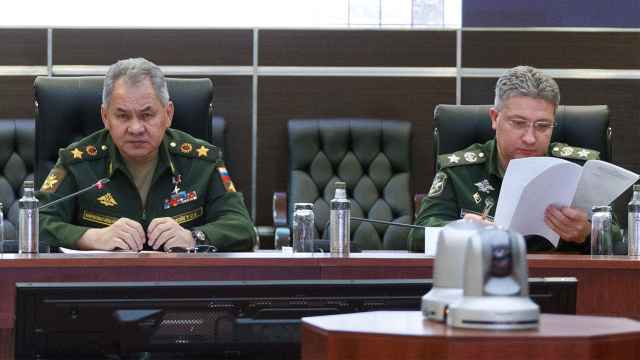Russian-installed authorities in occupied Ukraine are developing a centralized “information space” for pro-Russian mass media and outreach, the Vedomosti business daily reported Friday.
Russia claims to have annexed four regions of Ukraine — Donetsk, Luhansk, Zaporizhzhia and Kherson — in September 2022 following widely disputed referendums, despite failing to fully control any of them.
Moscow-installed authorities in these regions now seek “to create a channel of verified information in each region,” Vedomosti said, citing sources in the regions’ Russian administrations.
These channels’ main focus should be on news about the “socio-economic agenda” and the “agenda of creation" — in other words, positive news.
Like the rest of Russia, the occupied regions have faced censorship of information that contradicts the Kremlin’s narrative of the war since its invasion began in February 2022.
Currently, the only local pro-Russian media sources in the Zaporizhzhia and Kherson regions are the social media pages of Kremlin-appointed officials and military bloggers.
The Donetsk and Luhansk regions’ “news agencies” were first created in 2014 — when pro-Moscow separatists went to war with Kyiv — with the support of Russian state agencies.
The creation of similar agencies in the Zaporizhzhia and Kherson regions was announced earlier this month, with Russian officials and state journalists again playing an advisory role.
According to Vedomosti, one of these consultants will be Lana Samarina, the former first deputy editor-in-chief of the state-run TASS news agency.
Russia launched efforts to “Russify” the Ukrainian territories under its control shortly after invading Ukraine, implementing the Russian currency, issuing passports and installing Kremlin-appointed “governors.”
The occupied regions have also faced censorship of information that contradicts the Kremlin’s narrative of the war.
Russia last month announced plans to hold local parliamentary elections in the occupied Ukrainian regions in September.
A Message from The Moscow Times:
Dear readers,
We are facing unprecedented challenges. Russia's Prosecutor General's Office has designated The Moscow Times as an "undesirable" organization, criminalizing our work and putting our staff at risk of prosecution. This follows our earlier unjust labeling as a "foreign agent."
These actions are direct attempts to silence independent journalism in Russia. The authorities claim our work "discredits the decisions of the Russian leadership." We see things differently: we strive to provide accurate, unbiased reporting on Russia.
We, the journalists of The Moscow Times, refuse to be silenced. But to continue our work, we need your help.
Your support, no matter how small, makes a world of difference. If you can, please support us monthly starting from just $2. It's quick to set up, and every contribution makes a significant impact.
By supporting The Moscow Times, you're defending open, independent journalism in the face of repression. Thank you for standing with us.
Remind me later.


